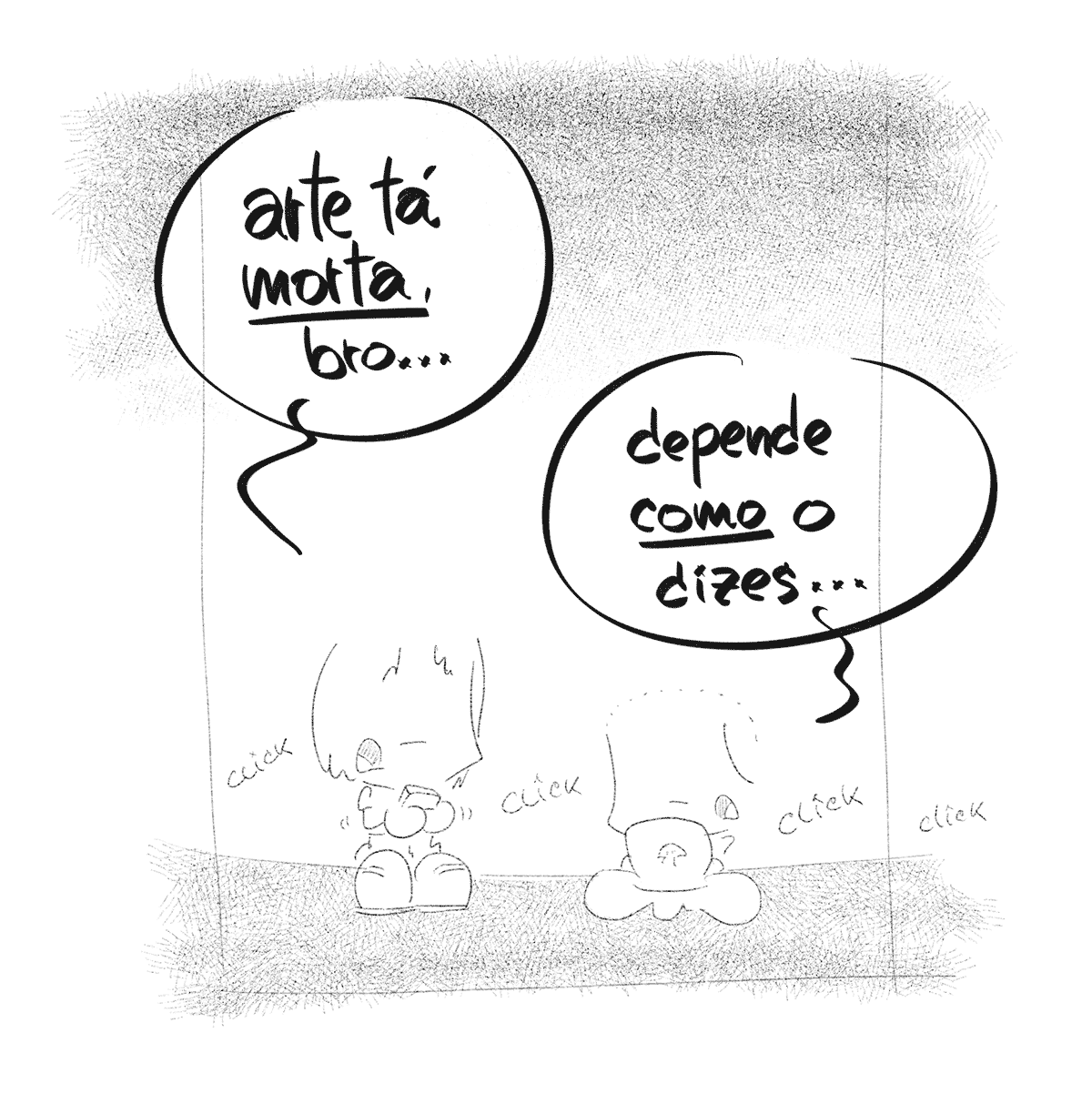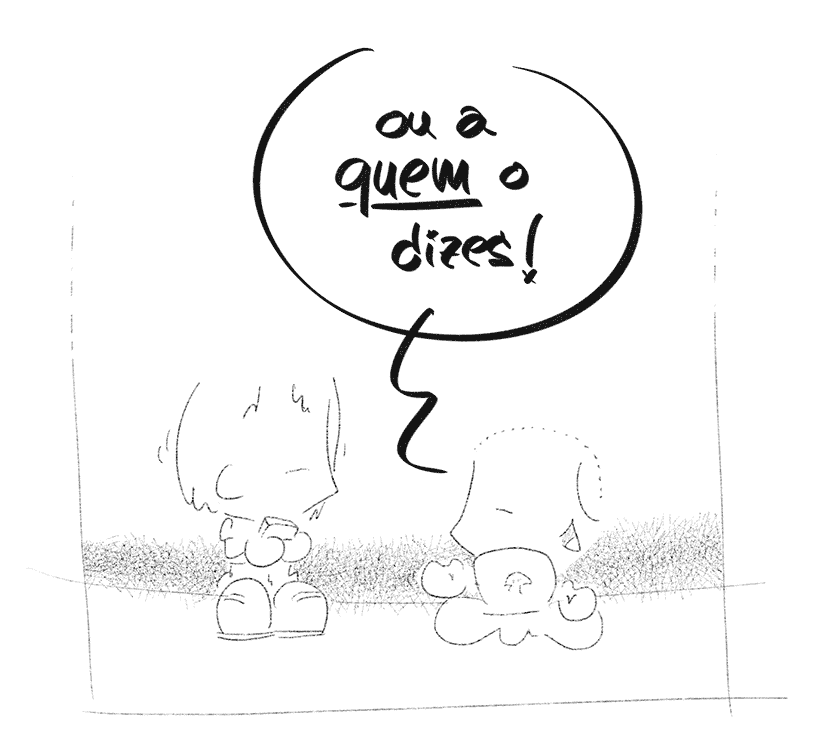o que se diz
Entre a ética e estética do acto de desaparecer.

De um dos poucos que ainda postam à esfera pública, começamos do takedown ao "The Aesthetics of Comics" 2000 por David Carrier, "an awful book":
From the Introduction: 'This book is the first by an analytic philosopher to identify and solve the aesthetic problems posed by comic strips'. So, here comes the great analytic pholosopher and BAM!, he solves it.
in "Ética e Estética" 7 jan 2019
De onde concordamos com o autor da crítica: conseguimos discernir uma evolução nos comics.
Carrier cheats: when he claims that comics are a posthistorical art form (it doesn't evolve technically; Maus and City of Glass just add new content without being technically innovative). Jack Kirby used collage! Dave McKean used computer generated images, Alex Barbier used paintings and Anke Feuchtenberger just pencils, Druillet blew the page layout up, Moebius did the same with the narrative sequence, etc... etc... etc...
in "Ética e Estética" 7 jan 2019
De onde discordamos:
The master sez comics only exist when:
- there are speech balloons;
- closely linked images (no big narrative gaps between them);
- these images are not very big allowing us a personal reading of them.
I say that he's wrong: a comic is still a comic even if it is 20 stores high.
in "Ética e Estética" 7 jan 2019
I say tha second dude is wrong on tha first dude on that last thingy. Mas o nosso interesse vai como de habitual para as coincidências: escritos-e-lidos no mesmo dia dois artigos cruzados à vossa apreciação.
a) O autor anterior, agora em português (mashup):
Sou, indubitavelmente, filho do pós-modernismo. Considero mais importante o que se diz do que a forma como se diz... com a ressalva de que o "como" é inextricável "do que". A forma é conteúdo e vice-versa, ética e estética são as duas páginas da mesma folha e, como tal, são inseparáveis.
in "Ética e Estética" 7 jan 2019
b) Noutro hemisfério, igualmente em discussão de comics e arte, o pós-modernismo:
Postmodernism is the philosophy of “reality is constructed.” It’s the point at which you stop trying to bend rules or make new ones, and instead realize how arbitrary rules are in the first place. The thing is that postmodernism has been around for a while, and by now is a bit of a true-but-boring insight. It’s nihilistic in a way that runs the risk of getting old.
in "Vanishing Act" 7 jan 2019
Complementam-se. E ambos convergem:
David Carrier is the 3.675 th theorist since Hegel to say that art is dead. I'm really not in the mood to discuss that.
in "Ética e Estética" 7 jan 2019
Maybe I just haven’t managed to accept that art making sense is futile yet.
in "Vanishing Act" 7 jan 2019
E não terminamos aqui de sentidos extra em coincidências. Brindando a regressos — nos moldes tradicionais:
Quanto a reactivar as escalas que produzem a baixa e a alta cultura, claro que sim. Com a ressalva de que há quadros e romances que são baixa cultura e banda desenhada que é alta cultura.
in "Ética e Estética" 7 jan 2019
...notamos ainda aquele blindspot à web, felizmente tocado no segundo artigo (mesmo se entre parêntesis):
(The internet is at once this very consequential thing full of people performing and inventing themselves, and yet it is almost completely intangible. Simultaneously real and fake, like art itself.)
in "Vanishing Act" 7 jan 2019
Do que se diz, inextricável de como se diz, para breve — no inverso dos artsys.
A comic artist needs the public. Really? Tell that to alternative comics artists!
in "Ética e Estética" 7 jan 2019


